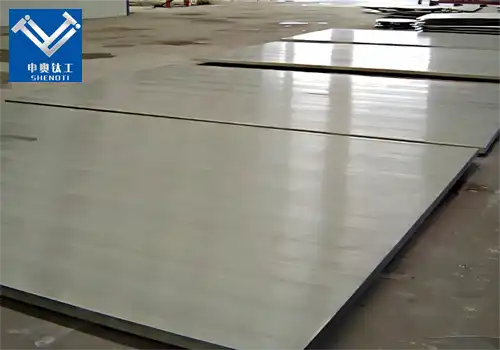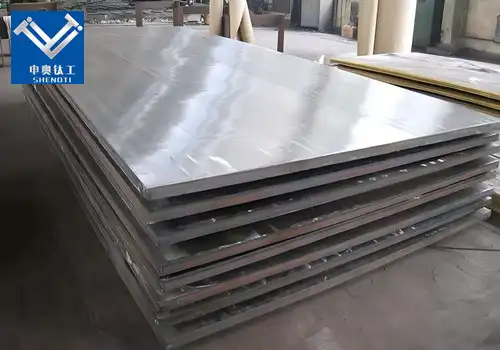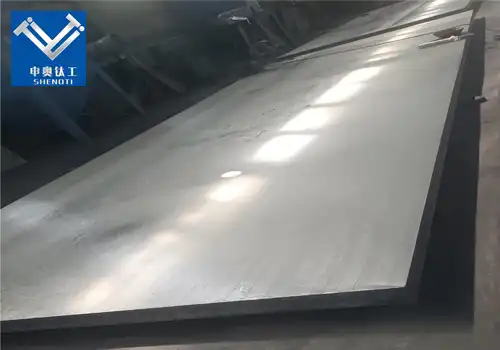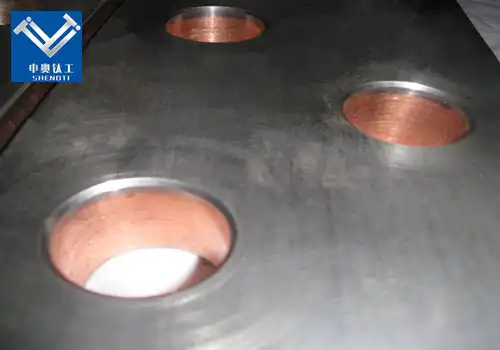
What Are the Advantages of Titanium Clad Plates?
2025-04-24 09:47:33
What Industries Are Titanium Copper Composite Plates Mainly Used In?
Titanium copper composite plates—also known as titanium-clad copper plates—are engineered materials that combine the corrosion resistance of titanium with the excellent electrical and thermal conductivity of copper. This synergy makes them indispensable across a range of industries where durability, conductivity, and resistance to harsh environments are paramount.
What Are the Advantages of Titanium Clad Plates?
Titanium clad plates offer a unique combination of properties that make them highly desirable in various industrial applications:
1. Corrosion Resistance
Titanium's exceptional resistance to corrosion, especially in acidic, alkaline, and saline environments, makes it ideal for industries like petrochemical, marine, and power generation. The titanium layer protects the underlying copper from corrosive elements, thereby extending the lifespan of components.
2. Electrical and Thermal Conductivity
Copper is renowned for its excellent electrical and thermal conductivity. When clad with titanium, the composite plate retains copper's conductive properties while gaining the protective benefits of titanium. This makes titanium copper composite plates suitable for electrical applications where corrosion resistance is also required.
3. Mechanical Strength and Durability
The combination of titanium and copper results in a material that is not only strong but also durable. This makes it suitable for structural applications where both strength and resistance to environmental factors are critical.
4. Cost-Effectiveness
By cladding copper with a thin layer of titanium, manufacturers can achieve the desired properties at a lower cost compared to using solid titanium. This makes titanium copper composite plates a cost-effective solution for many applications.
5. Lightweight
Titanium is a lightweight metal, and when used in composite plates, it contributes to the overall reduction in weight without compromising strength. This is particularly beneficial in industries like aerospace and automotive, where weight reduction is crucial.
How Are Titanium Clad Plates Manufactured?
The manufacturing of titanium copper composite plates involves several sophisticated processes to ensure a strong bond between the two metals:
1. Explosive Bonding
This method uses controlled explosive charges to bond titanium and copper plates together. The high-pressure impact causes a metallurgical bond without melting the metals. Explosive bonding is known for producing high-quality bonds with excellent mechanical properties.
2. Roll Bonding
In roll bonding, titanium and copper sheets are cleaned, stacked, and passed through rollers under high pressure and temperature. This process creates a solid-state bond between the metals. Roll bonding is suitable for producing large sheets and is widely used in industrial applications.
3. Hot Pressing
Hot pressing involves applying heat and pressure simultaneously to bond titanium and copper sheets. This method ensures uniform bonding and is often used for producing composite plates with specific thicknesses and properties.
Each manufacturing method has its advantages and is chosen based on the desired properties of the final product, production volume, and application requirements.
What Is the Difference Between Titanium Clad Plates and Titanium Alloy Plates?
While both titanium clad plates and titanium alloy plates involve titanium, they differ significantly in composition, properties, and applications:
1. Composition
Titanium Clad Plates: These are composite materials consisting of a layer of titanium bonded to a base metal, such as copper or steel. The titanium layer provides corrosion resistance, while the base metal contributes to mechanical strength and other properties.
Titanium Alloy Plates: These are homogeneous materials where titanium is alloyed with other elements like aluminum, vanadium, or molybdenum to enhance specific properties like strength, heat resistance, or weldability.
2. Properties
Titanium Clad Plates: Offer a combination of properties from both metals—corrosion resistance from titanium and conductivity or strength from the base metal.
Titanium Alloy Plates: Provide uniform properties throughout the material, tailored to specific applications requiring high strength, lightweight, or resistance to extreme temperatures.
3. Applications
Titanium Clad Plates: Used in industries where surface properties like corrosion resistance are critical, but the bulk properties can be provided by a more economical base metal. Common applications include heat exchangers, pressure vessels, and marine components.
Titanium Alloy Plates: Preferred in applications requiring uniform properties throughout the material, such as aerospace components, medical implants, and high-performance automotive parts.
Understanding these differences is crucial for selecting the appropriate material for specific industrial applications.
Conclusion
Titanium copper composite plates are versatile materials that combine the best properties of titanium and copper. Their unique combination of corrosion resistance, conductivity, strength, and cost-effectiveness makes them suitable for a wide range of industries, including petrochemical, power generation, marine engineering, electronics, and medical equipment.
Advancements in manufacturing processes like explosive bonding, roll bonding, and hot pressing have made it possible to produce high-quality titanium copper composite plates tailored to specific application requirements.
As industries continue to seek materials that offer performance, durability, and cost savings, titanium copper composite plates are poised to play an increasingly important role in modern engineering applications.
Contact Us
For more information on titanium copper composite plates and how they can benefit your industry, please contact us:
Email: zh@baojiti.com.cn
Our team of experts is ready to assist you with your material needs and provide solutions tailored to your specific applications.















